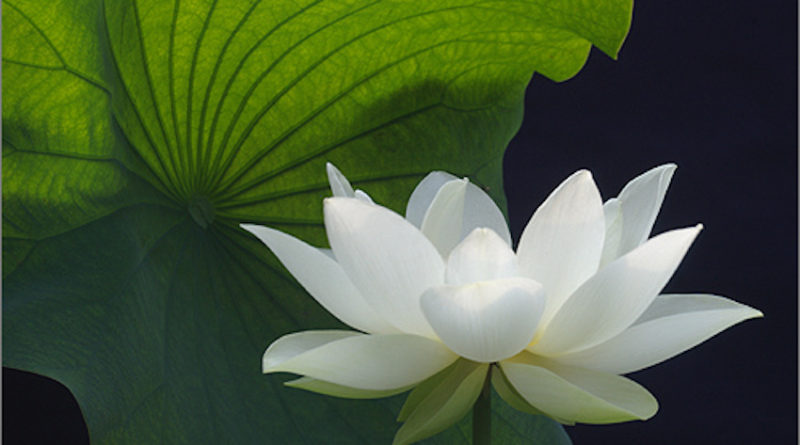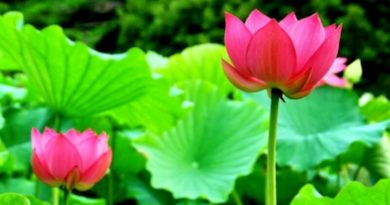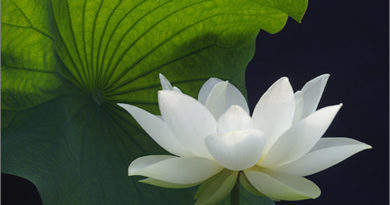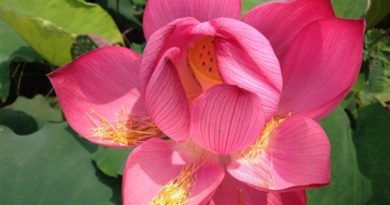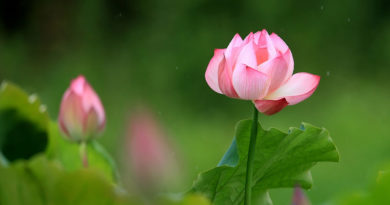DHAMMA PADETHA – 26. SACCA MANTAM: THE GOOD AND THE BAD
DHAMMA PADETHA – SACCA MANTAM: THE GOOD AND THE BAD
With the exception of anagami and arahant all human beings in this world become frightened, distressed and restless when faced with a catastrophe which threatens life and property all at once. So we have to depend on sacca, the power of truth by which we can escape from disaster.
Sacca mantam means:
(1) To make a vow revealing the good traits within yourself truthfully.
(2) To make a vow revealing the bad traits within yourself truthfully.
(1) When faced with a catastrophe which threatens life and property all at once, you try and contemplate the good traits or the virtue within yourself and say it verbally. “Because I have said the truth may I escape this disaster.” Because of these truthful words, you can escape from various kinds of disaster.
(2) When faced with a catastrophe which threatens your life and property all at once, you try and contemplate the bad traits within yourself and say it aloud, “Because I have said the truth may I escape this disaster which threatens my life and property”. Because of these truthful words you can escape from many kinds of danger and disaster.
Good and noble people in ancient times have been cured of their ailments and escaped death and were happy due to their truthful words (sacca mantam).
Making a vow of the good traits
In ancient times, due to the son’s truthful words, the mother’s headache was cured. Long ago, there lived in Ceylon – (Sri Lanka) a mother and two sons named Mahacakkala, the elder brother and Culacakkala, the younger brother who worked and supported their mother. The mother suffered from a severe headache and the physician prescribed rabbit’s blood to cure the headache. Thus Mahacakkala sent Culacakkala into the forest to trap a rabbit.
Culacakkala took nets with him to trap a rabbit and went into the forest. The trap was kept and a mother rabbit which had two suckling rabbits was caught. The female rabbit was so frightened of death that it shouted and struggled with all her strength. The two little rabbits came running towards the mother and pitifully ran around her.
Culacakkala saw that even though they were animals they showed a pitiful behaviour toward their mother and kept running around. At that time Culacakkala tried to identify himself with the young rabbits and was filled with pity. He thought to himself, ‘these three rabbits are like the three people (members) of my family.’To kill the young rabbits’ mother to save my mother is not fair, it is devoid of compassion. Thinking thus, he freed the female rabbit from the trap.
When he arrived home, the elder brother Mahacakkala asked why he did not get a rabbit. Culacakkala replied that although he had caught a female rabbit, feeling sorry for the three rabbits, mother and two sons which were like themselves, he set the mother rabbit free.
Mahacakkala became angry because his brother compared the mother to a lowly animal and was about to beat him with a stick. The young brother ran to bis mother and embraced her. The mother prevented the elder son from beating the young brother.
Culacakkala made a vow: “Ever since I could cognize, I have not klled. With loving-kindness towards the three rabbits, mother and sons equally with my own family, I freed the mother rabbit and fulfilled my sila”, he said it aloud. “Because I have uttered these truthful words, may my mother’s headache be cured.” Wherefore, the mother’s headache was miraculously cured as though it was taken away.
Thus, because Culacakkala had spoken the truth about his good qualities, the mother was cured of her headache.
Sacca words about bad qualities
Once upon a time, Lord Buddha-to-be Kanhadipayana Hermit lived in a monastery at Baranasi. One day rich man Mandabya came to the monastery of the Hermit Kanhadipayana, together with his wife and son Yannadat, with offerings.
While the parents were conversing with the hermit, the young son was playing with a top. It fell into a hole where there was a snake. Yannadat put his hand into the hole to retrieve his top. Whereupon, the snake angrily bit the hand hard and the child fell down fainted.
The parents carried the child to the hermit and asked him to cure their son from the poison of the snake. The hermit replied that he could not cure the child. “If you cannot cure him with medicine, make a vow with truthful words and cure the snake’s poison”, urged the parents.
The hermit put his hand on Yannadat’s head and said aloud: “Ever since I became a hermit, I was happy only for seven days in the noble practice. Seven days after that, till over fifty years, I was unhappy in the noble practice. Therefore, I practised ignoble practice. Because of these truthful words may the poison of the snake be cured and may the child live.”
Because of the hermit’s sacca, truthful words, the snake’s poison fell to the ground out of the child’s breast. Yannadat opened his eyes, called ‘father, mother’ and fainted again.
Kanhadipayana hermit told the rich man Mandabya: “I have shown my power, you must make a vow for your young son to become alive.”
The father rich man Mandabya uttered a vow: “I do not like giving charity. Neither do I revere those who come to ask for donation. However, I give charity because I do not wish to break the tradition of the family. Because I have said these truthful words may the snake’s poison be cured and my son lives.”
Because of Mandabya’s sacca, truthful words, the snake’s poison fell to the ground from Yannadat’s waist upwards.
Though the poison fell out, Yannadat could not sit, stand or walk about. So the rich man Mandabya told his wife:
“I have shown my power, you make a vow so that your son can stand and walk about.”
Yannadat’s mother told her husband: “Dear rich man Mandabya, it is inappropriate to make a vow in front of you.” The husband urged her to do so for the sake of the son. And then she said: “I hate the snake that bit my son Yannadat and I also hate Yannadat’s father equally. Because I have said these words truthfully may the snake poison be cured and my son live.”
Because of the mother’s sacca words, all the poison in Yannadat’s body fell to the ground. Yannadat stood up, went about and was able to play.
Thus, the hermit, the rich man and his wife found out the bad traits in each other and tried to correct or mend each other’s faults. Therefore, the hermit’s unhappiness, the rich man’s unwillingness to give charity and the wife’s hatred were all mended. All the bad characteristics were cured and turned to happiness, willingness to give charity and to love.

